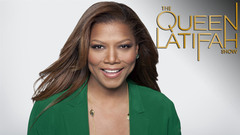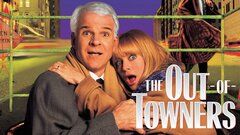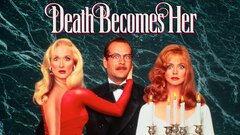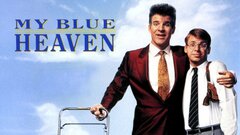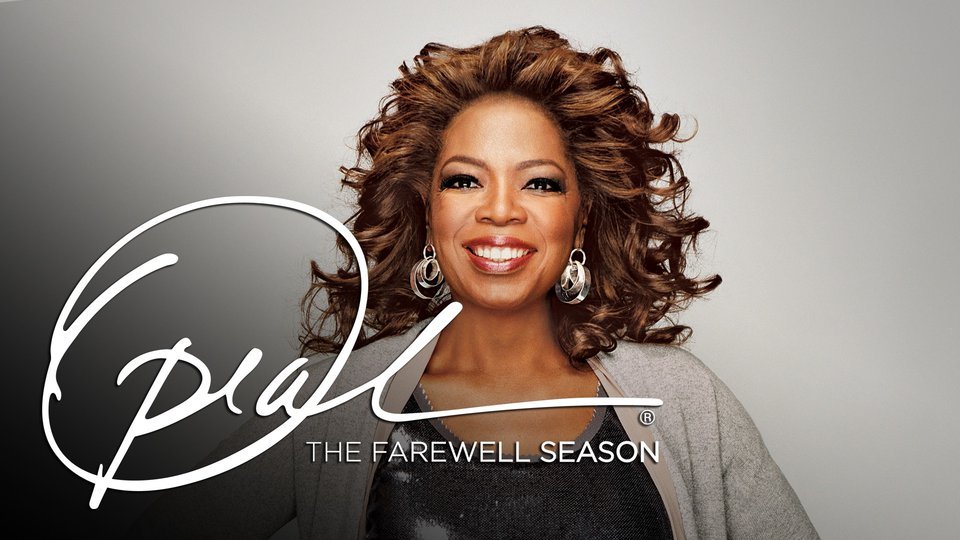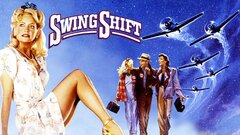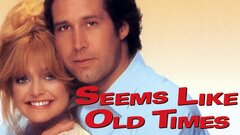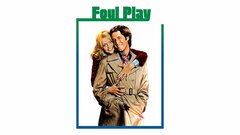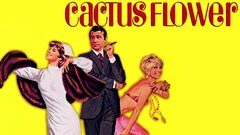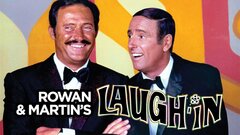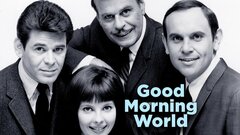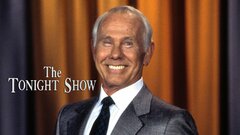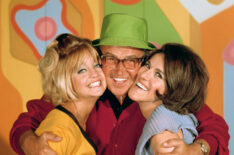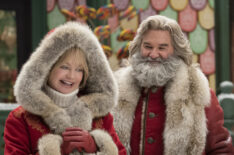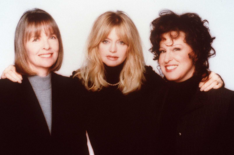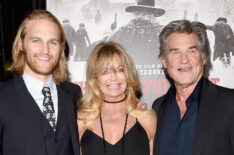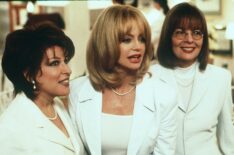The enduring star power of Goldie Hawn is a fairly unusual phenomenon for a contemporary Hollywood actress. She first gained celebrity through a brief stint as a "dumb blonde" dancer-comedienne on TV in the late 1960s and segued to the movies as an acclaimed supporting player before quickly achieving star status.
The now gracefully middle-aged showbiz veteran has maintained her celebrity and pumped up her industry muscle without any major tinkering with her persona. Sharp-eyed viewers may have detected a subtle evolution but, to the general public, she remained an eternally youthful and joyously giggly girl for decades.
Long one of the elite group of actresses who could "open" a major motion picture, Hawn made a series of box office hits ranging from "Private Benjamin" (1980) to the black comedy "Death Becomes Her" (1992) before gracefully transitioning into semi-retirement punctuated by occasional films like "The Banger Sisters" (2002) and "Snatched" (2017).
The daughter of a Presbyterian musician father and a Jewish mother who was a jewelry wholesaler and dance school owner-administrator, Hawn was born in our nation's capital and raised in Tacoma Park, MD. Having begun her training in ballet and tap-dancing at the age of three, she was dancing in the chorus of the Ballet Russe de Monte Carlo production of "The Nutcracker" at age ten.
Hawn made her acting debut at age 16 in Williamsburg, Virginia, playing Juliet in a Virginia Stage Company production of Shakespeare's classic. By 17, she was running her own dance studio where she taught ballet to pay her college tuition.
Hawn abandoned her drama studies at American University at age 18 and headed for NYC to pursue a career as a professional dancer. Her debut in this arena came in 1964 performing "Can-Can" at the Texas Pavilion of the New York World's Fair. She subsequently worked in NYC as a go-go dancer and sang and danced in revivals of "Guys and Dolls" and "Kiss Me, Kate." Other hoofing gigs took her to Puerto Rico, Las Vegas and Los Angeles.
The latter locale was the setting for her first big break. Hawn was "discovered" dancing in the chorus line of a 1967 Andy Griffith TV special. An agent singled her out, signed her and got her cast in a supporting role on a sitcom, "Good Morning, World" (CBS, 1967-68). Hawn's winning portrayal of a gossipy neighbor on the one-season sitcom quickly landed her work the following season as a featured performer on the landmark comedy variety revue "Rowan & Martin's Laugh-In" (NBC, 1968-70).
She danced, giggled and jiggled, covered with body paint and a bikini. America took notice as did the Television Academy which gave her two Emmy nods. British critic David Thomson has written, "I don't think any film has ever captured the lyrical blonde naivete that Goldie showed on TV's 'Laugh-In'. She is usually pert and engaging: amiability perches on her high, child's voice and gurgles from her baby's mouth. The eyes are still eyes from Lolita's face."
Hawn's film acting career got rolling with a winning portrayal of a ditsy Greenwich Village salesgirl having an affair with a "married" dentist in "Cactus Flower" (1969). Even working alongside such veterans as Walter Matthau (playing the deceptive amorous dentist) and Ingrid Bergman (playing his repressed but adoring receptionist), Hawn won the critical raves and a Best Supporting Actress Oscar. She continued in the nice and nubile nincompoop mode opposite Peter Sellers in "There's a Girl in My Soup" (1970).
"$" (1971) offered a change-of-pace role as a prostitute embroiled in a bank heist with Warren Beatty. "Butterflies Are Free" (1972), a romantic comedy, returned her to a more comfortably kooky character in love with a blind neighbor (Edward Albert). Hawn truly displayed her dramatic chops in her next film project, "The Sugarland Express" (1974), director Steven Spielberg's feature bow. As petty criminal Lou Jean Poplin, she showed the downside of kooky immaturity, playing a mother whose child is taken away after she is deemed unfit by the courts. Lou Jean breaks her weak-willed husband (William Atherton) out of a pre-release facility to aid her in her quest to get back their child. Their initially comic misadventures escalate to a tragic conclusion.
Hawn has never been better but the film, though scoring with the press, bombed at the box office. Hawn continued to display new depths in such projects as "The Girl from Petrovka" (1974) and, again with Warren Beatty, in Hal Ashby's "Shampoo" (1975). She enjoyed a huge popular success opposite Chevy Chase in the romantic caper "Foul Play" (1978) but that pair proved less palatable in their follow-up "Seems Like Old Times" (1980).
Hawn marked her debut as an executive producer with one of her biggest hits, "Private Benjamin" (1980). She was perfectly cast as a caricatured "Jewish American Princess" who grows up through a stint in the Army. Hawn received an Oscar nomination for Best Actress for her efforts.
She received the worst press of her career in the wake of rumors about her behind-the-scenes machinations on the period romantic comedy-drama "Swing Shift" (1984). Director Jonathan Demme accused Hawn of recutting the film to play up her character at the expense of impressive supporting player Christine Lahti. The beloved Goldie emerged as the villain at the time though subsequent reports have suggested a different version of events. In any event, the film was a critical and commercial failure.
Beginning with "Protocol" (1984), Hawn joined costume-designer-turned-producer Anthea Sylbert in the Hawn/Sylbert Movie Company to produce a string of mostly mediocre starring vehicles which tended to make modest profits.
Thanks to her winning screen persona, Hawn survived with her star status intact. In the early 90s, Hawn tried to appear in a wider variety of films than the comedies with which she had become associated. She replaced Meg Ryan to play a compulsive liar opposite a befuddled Steve Martin in the comedy "Housesitter" (1992), but her other credits included the Mel Gibson actioner "Bird on a Wire" (1990), the failed Hitchcockian "woman in jeopardy" pic "Deceived" (1991) and "Crisscross" (1992), a surprisingly effective and gritty story about a welfare mother raising her son in a seamy part of Key West.
Hawn was less sympathetic than usual teamed with Meryl Streep and Bruce Willis in Robert Zemeckis' elaborate black comedy fantasy "Death Becomes Her" (1992). After a four-year hiatus from the screen, Hawn joined forces with Diane Keaton and Bette Midler in the hit comic romp "The First Wives Club" (1996).
Hawn had obvious fun as an aging Hollywood star who turns to plastic surgery to remain competitive in an industry where women are relegated to three roles, "babe, district attorney and 'Driving Miss Daisy'." Later that year, she returned to her musical roots, singing and dancing as Woody Allen's ex-wife (now married to Alan Alda) in Allen's "Everybody Says I Love You."
She also had several projects in various stages of development as a producer. Hawn moved behind the cameras to make her directorial debut with the TV-movie "Hope" (TNT, 1997), a coming of age tale set in Arkansas.
After a brief hiatus, Hawn returned in front of the camera teamed with Steve Martin in the uneven remake of "The Out-of-Towners" (1999). She then co-starred with Warren Beatty and Diane Keaton in "Town & Country" (2001), a comedy about marriage that became known for its protracted filming and troubled production history.
As a producer, Hawn oversaw the well-recieved TV-movies "When Billie Beat Bobby" (ABC, 2001), and "The Matthew Shepard Story" (NBC, 2001). She was next seen on the big screen teamed with Susan Sarandon as former groupies who reunite in "The Banger Sisters" (2002). Hawn then entered a period of unofficial retirement, broken only by the publication of her memoir A Lotus Grows in the Mud in 2005, a voice appearance on the animated hit "Phineas and Ferb" (Disney 2007-2015) in 2013, and narration of a documentary about menopause, "Hot Flash Havoc" (2016).
Hawn made her first film in 15 years, the action comedy "Snatched" (2017), playing opposite Amy Schumer as a mother-daughter duo who get kidnaped during a tropical vacation.
























